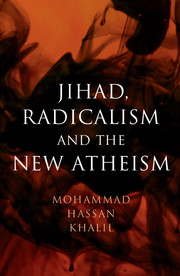7 - “It Is about Islam”: The Case of Ayaan Hirsi Ali
from Part III - The New Atheism
Published online by Cambridge University Press: 12 December 2017
Summary
Ayaan Hirsi Ali (née Ayaan Hirsi Magan) was born into a Muslim family in Somalia in 1969. The daughter of a once-imprisoned Somali politician, Hirsi Magan Isse (d. 2008), her family relocated to Saudi Arabia, then to Ethiopia, then to Kenya before she received asylum in the Netherlands as a young adult. There she worked at various institutions as a translator for Somali refugees, including abused Somali women. Her growing interest in political science ultimately led her to pursue a master's degree in the field at Leiden University; she completed the degree in 2000.
By her own admission, the September 11 tragedy and the recorded statements of Osama bin Laden played a critical role in her move away from Islam toward atheism. And this move was hardly discreet, as she publicly criticized Islam in various writings, including the screenplay of her 2004 short film Submission – a film whose producer, Theo van Gogh, was brutally murdered shortly after its release by a member of the Muslim terrorist cell known as the Hofstad Group as an act of reprisal. Such threats did not paralyze Ali, who by this time was serving in the Dutch Parliament, after having won a seat there the year prior.
In 2006, after the validity of her Dutch citizenship was publicly called into question, she relocated to the United States (she became an American citizen in 2013) and served as a fellow at the American Enterprise Institute in Washington, DC. As founder of the Ayaan Hirsi Ali (AHA) Foundation – a charitable organization that aims “to help protect and defend the rights of women in the West” – and a fellow at Harvard University's John F. Kennedy School of Government, she remains an influential figure, particularly in the West.
As an author, Ali made her first big splash in the English-speaking world in 2006, with the publication of The Caged Virgin: An Emancipation Proclamation for Women and Islam. This was followed by two popular autobiographical works, Infidel: My Life (2007) and Nomad: From Islam to America (2010). Her more recent publication, Heretic: Why Islam Needs a Reformation Now (2015), offers her most serious critique of Islam to date. In what follows, I shall examine her earlier books before turning to Heretic.
- Type
- Chapter
- Information
- Jihad, Radicalism, and the New Atheism , pp. 130 - 153Publisher: Cambridge University PressPrint publication year: 2017



